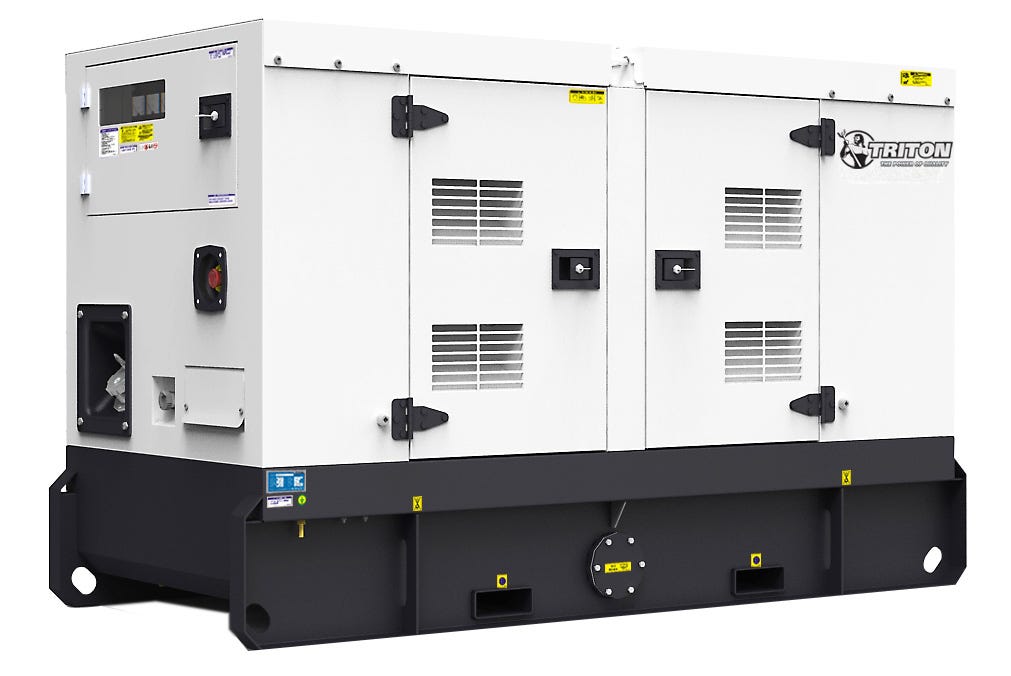Diesel Generators vs. Other Backup Power Solutions: Cost and Performance Showdown
When it comes to ensuring uninterrupted power for homes, businesses, and critical infrastructure, selecting the right backup power solution is paramount. Among the various options available, diesel generators have long been a preferred choice due to their reliability and performance. However, it’s essential to compare them against other backup power solutions to determine the best fit for your needs.
Diesel Generators: Powerhouse of Reliability
Diesel generators are renowned for their robustness and efficiency. They are capable of delivering consistent power over extended periods, making them ideal for industrial applications, hospitals, data centers, and remote locations where grid access is limited.
Key Advantages:
High Efficiency: Diesel generators consume less fuel compared to gasoline-powered units, offering better fuel economy.
Durability: Built to withstand harsh conditions, diesel engines have a longer lifespan and require less frequent maintenance.
Cost-Effectiveness: While the initial investment may be higher, the long-term operational costs are often lower due to fuel efficiency and durability.
Fuel Availability: Diesel fuel is widely available and can be stored safely for extended periods, ensuring readiness during emergencies.
🔋 Battery-Powered Systems: Clean but Limited
Battery-powered backup systems, including lithium-ion and lead-acid batteries, have gained popularity for residential use due to their clean energy profile and low maintenance requirements.MasterAire+1ElectronicsHub+1
Key Advantages:
Environmentally Friendly: Produce no emissions during operation, contributing to a cleaner environment.
Low Maintenance: Require minimal upkeep, with no need for fuel storage or engine servicing.
Quiet Operation: Operate silently, making them suitable for noise-sensitive areas.
Limitations:
Limited Runtime: Battery systems can only supply power for a limited duration, typically a few hours, depending on capacity.
High Initial Cost: The upfront cost can be significant, especially for systems designed to power entire homes or businesses.
Capacity Constraints: Scaling up to meet higher power demands requires substantial investment and space.
☀️ Solar Power Systems: Sustainable but Weather-Dependent
Solar power systems harness energy from the sun, offering a renewable and sustainable backup power solution.
Key Advantages:
Renewable Energy Source: Utilizes an inexhaustible energy source, reducing dependence on fossil fuels.
Low Operating Costs: After installation, operational costs are minimal, with savings on energy bills.
Incentives: Various government incentives and rebates can offset initial installation costs.
Limitations:
Intermittent Power Generation: Solar energy production is dependent on sunlight, making it unreliable during cloudy days or at night.
High Initial Investment: The cost of purchasing and installing solar panels and associated equipment can be substantial.
Space Requirements: Adequate roof space is necessary to install sufficient panels to meet energy needs.
⛽ Natural Gas Generators: Cleaner but Less Efficient
Natural gas generators are often considered a cleaner alternative to diesel, emitting fewer pollutants.
Key Advantages:
Lower Emissions: Produce fewer greenhouse gases and pollutants compared to diesel generators.
Stable Fuel Prices: Natural gas prices tend to be more stable and often lower than diesel.
Quick Start-Up: Natural gas generators can start up quickly, providing immediate power.
Limitations:
Infrastructure Dependency: Require access to a natural gas pipeline, limiting their applicability in remote areas.
Higher Installation Costs: The need for specialized equipment and installation can increase upfront costs.
Lower Efficiency: Generally, natural gas generators are less fuel-efficient than diesel generators.
🏁 Conclusion: Choosing the Right Backup Power Solution
The optimal backup power solution depends on specific needs, including power requirements, budget, and environmental considerations.
For Industrial and Critical Applications: Diesel generators offer unmatched reliability and efficiency, making them suitable for industries where continuous power is essential.
For Residential Use: Battery-powered systems and solar power solutions provide clean energy options, though they may require supplemental power sources for extended outages.
For Cleaner Alternatives: Natural gas generators present a balance between environmental considerations and operational efficiency, suitable for areas with access to natural gas infrastructure.
At MasterAire, we offer a range of backup power solutions tailored to meet diverse needs. Our diesel generators, available in capacities from 15KW to 100KW, are designed for durability and efficiency, backed by a 1-year/1000-hour warranty. Explore our products to find the perfect fit for your power requirements.

Comments
Post a Comment